Just weeks after i wrote about OpenAI’s acquisition of Jony Ive’s hardware startup LoveFrom to form a new joint venture called “io”, iyO (IYO Inc.), a smaller wearable-tech startup founded by former Google engineer Jason Rugolo, filed a lawsuit on June 9th in the Northern District of California.
The complaint alleges that OpenAI, along with Sam Altman and Jony Ive’s new venture, wilfully infringed on its registered “IYO” trademark (a mark they’ve used since 2023 for audio-focused wearables) and engaged in unfair competition by launching a confusingly similar product under the name io shortly after private partnership talks.
According to court filings, IYO shared its IYO ONE roadmap with OpenAI and LoveFrom in early 2025, during which sensitive product design and positioning information was exchanged. Weeks later, OpenAI revealed its acquisition of io Products (io Products, Inc) and launched branding for its AI wearables under the io name, a clear homophone of IYO. The lawsuit states that this timing is no coincidence, saying it was strategic, meant to mislead customers, undercut competition and capitalize on IYO’s brand equity.
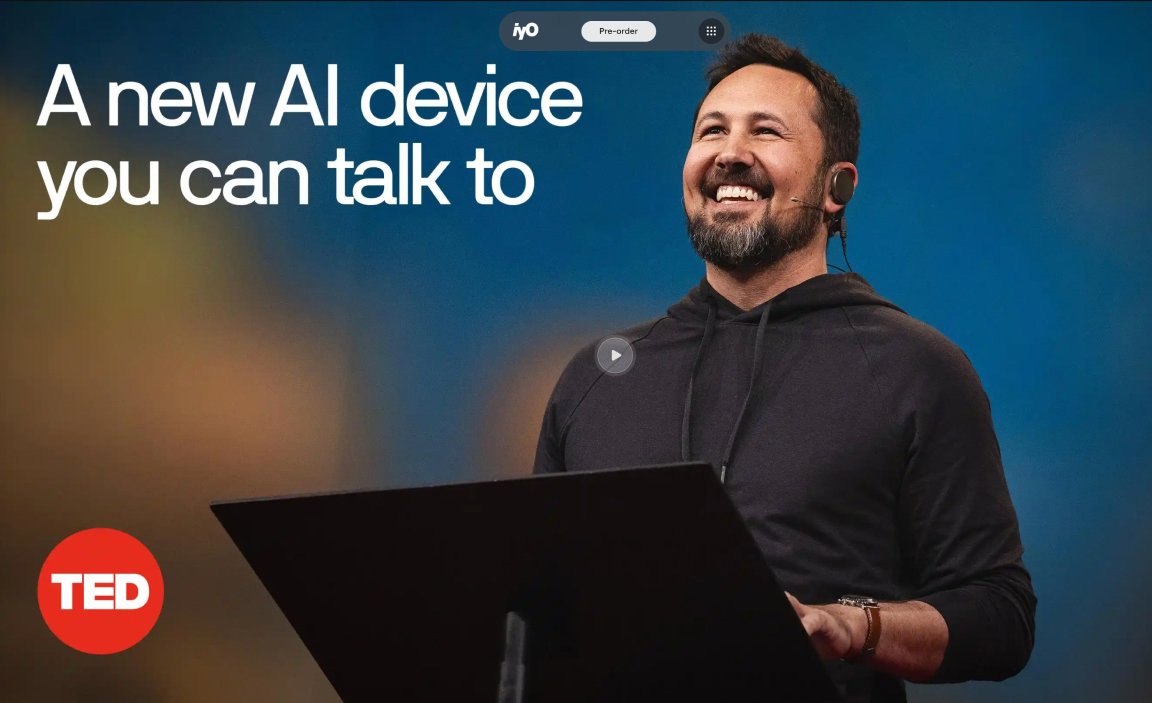
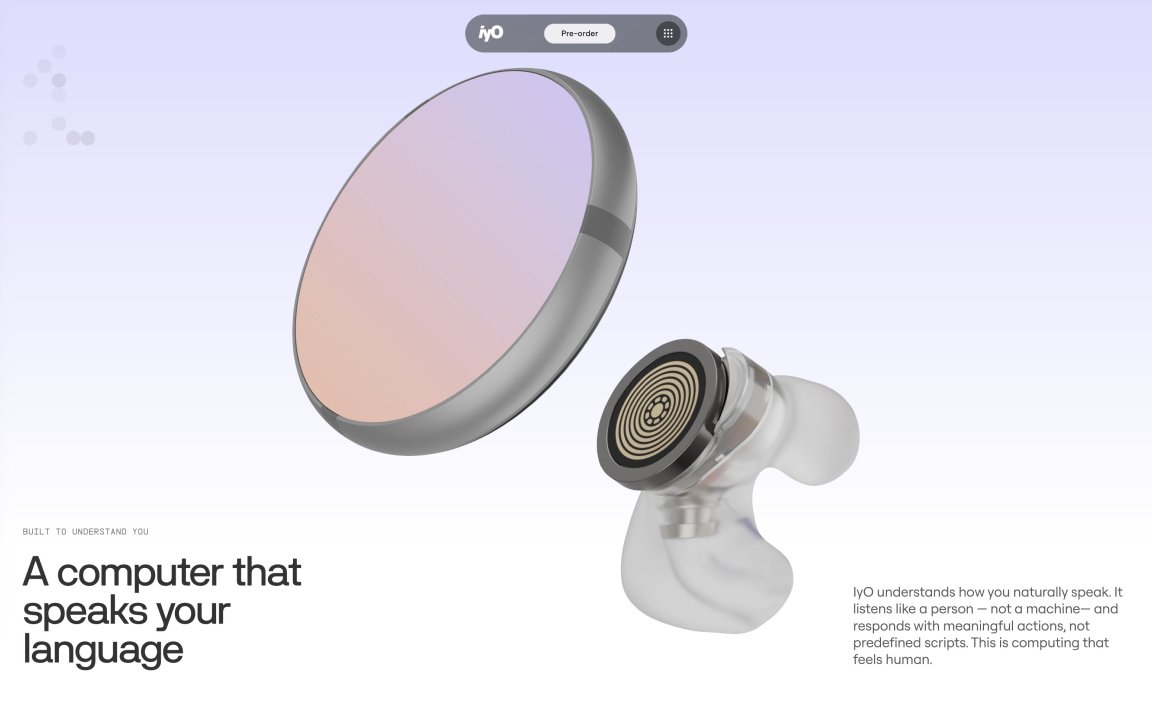
Before iyO became a standalone company, it started as an internal project at Google X, the company’s in-house R&D lab known for launching experimental “moonshot” technologies, these moonshot projects are ambitious ideas that aim to solve big problems with breakthrough innovation. The project was called Wolverine, a name inspired by the comic book character known for heightened senses. Its goal was to build a wearable device that could enhance human hearing by isolating voices in noisy environments.
Work on Wolverine began in 2018. The team explored multiple hardware forms and invested heavily in microphone design and signal processing… trying to “nail the physics”, as one of the former team member put it. It quickly became one of the fastest-growing initiatives inside Google X. But like many Google R&D efforts, it eventually spun out to pursue a more focused commercial path. That spinout became iyO, backed by investors including Alphabet, Lockheed Martin Ventures and Horizons Ventures, with the mission to bring their advanced hearing tech to consumers.
iyO now a new company focused on building AI-powered wearable devices. Their first product, the iyO ONE is what they call an “audio computer”. A screenless, voice-controlled device you wear in your ears. It’s designed to handle everyday tasks like translation, navigation, search and messaging using natural language. No apps, no taps, just one-on-one conversations with the device.
The new iyO ONE comes in two models, a Wi-Fi version priced at $599 and a Wi-Fi + LTE version at $699, with both available for preorder now with a $99 deposit. Visually, it leans into premium materials (titanium and glass) and ships in three colors Dawn, Dusk, and Night. The whole experience feels positioned more like a flagship design object than a mass-market gadget.

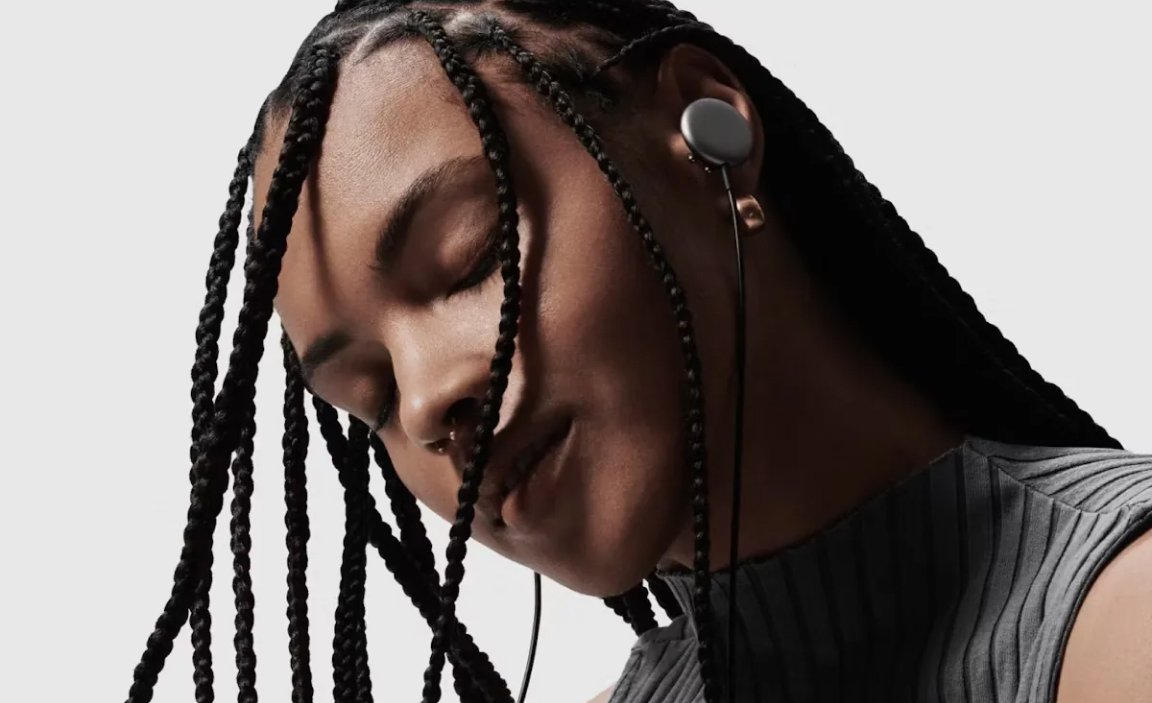
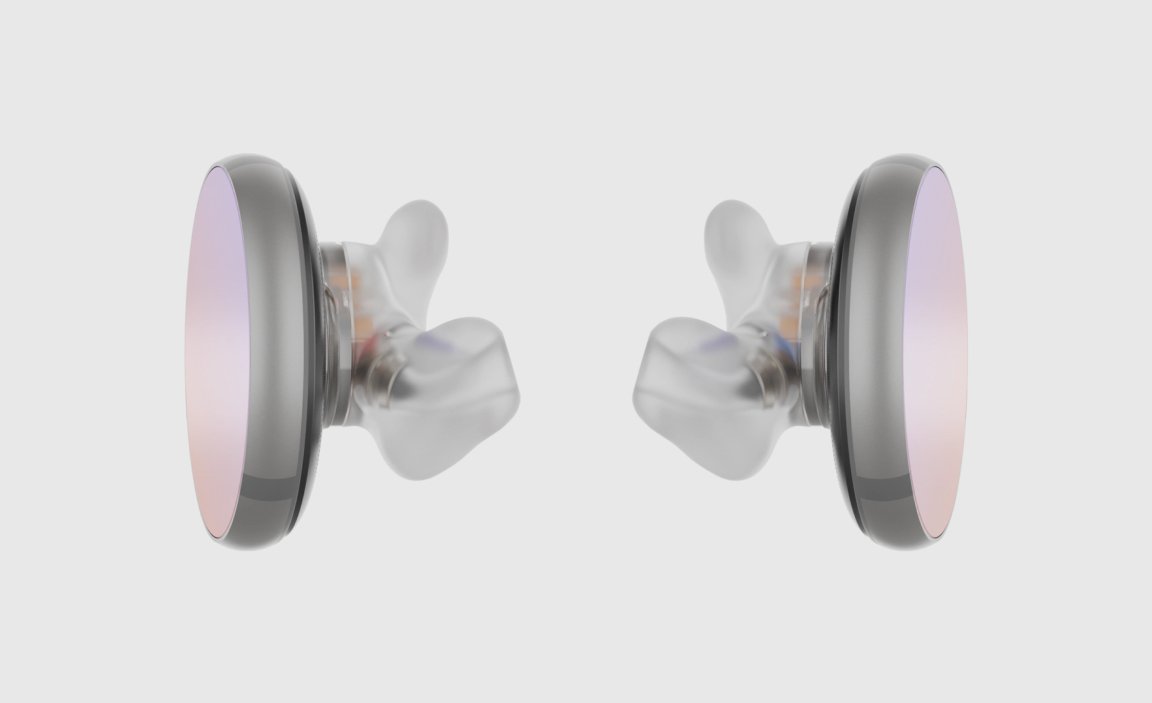

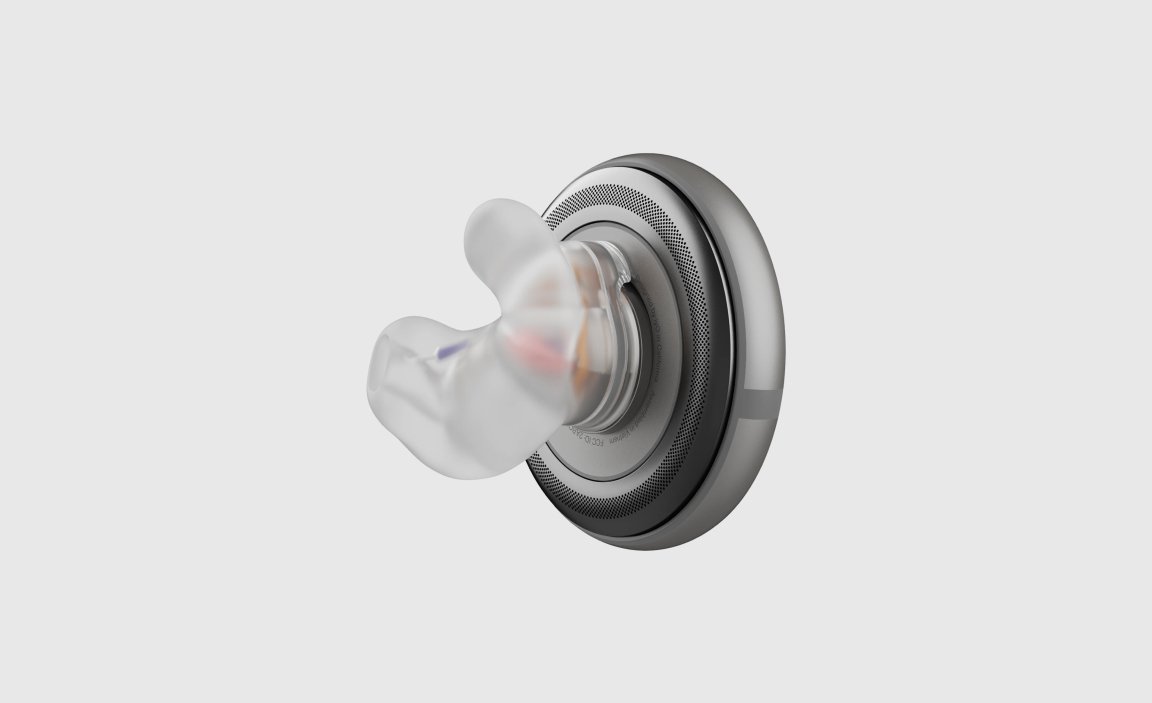
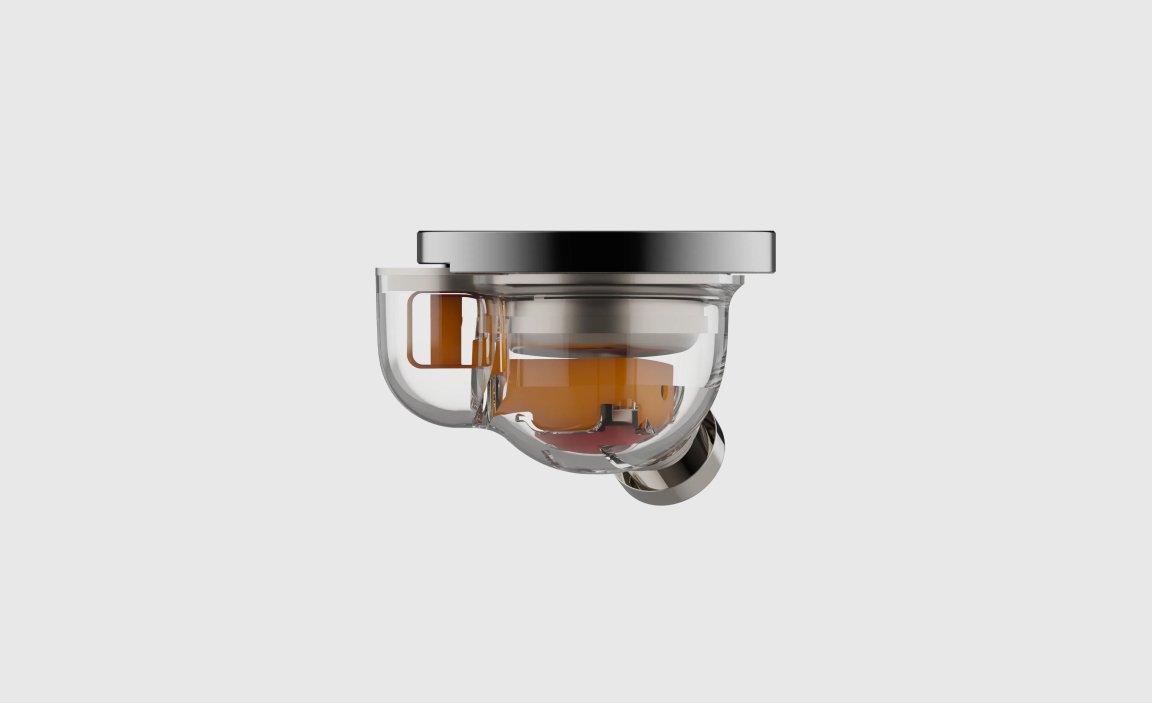
For those wondering, the iyO ONE features custom-molded earpieces in a titanium housing, with a 20-microphone array that enables noise isolation and spatial awareness. It includes an onboard AI chip, head tracking and gesture sensors, all designed to support natural, screenless interaction. Battery life clocks in at around 10 hours, with additional charges available through the case. Under the hood, the iyO ONE is powered by a 4 nm ARM-based chipset (likely Qualcomm S5 Gen 3) with Bluetooth 5.4, IP57 water resistance and dual 9-axis IMU sensors. The device connects via Bluetooth and Wi-Fi, with the LTE option available on the higher-end model. When available iyO says users can access a growing library of voice-first apps for music, translation and navigation. With apps like Owl (focused hearing enhancement), Babl (real-time translation), Sherlock (voice search), Auditory (navigation), and Deej (AI DJ for Spotify).
iyO isn’t trying to compete on specs or features, but are building a product around the belief that AI should integrate into daily life quietly and naturally, without needing a screen.
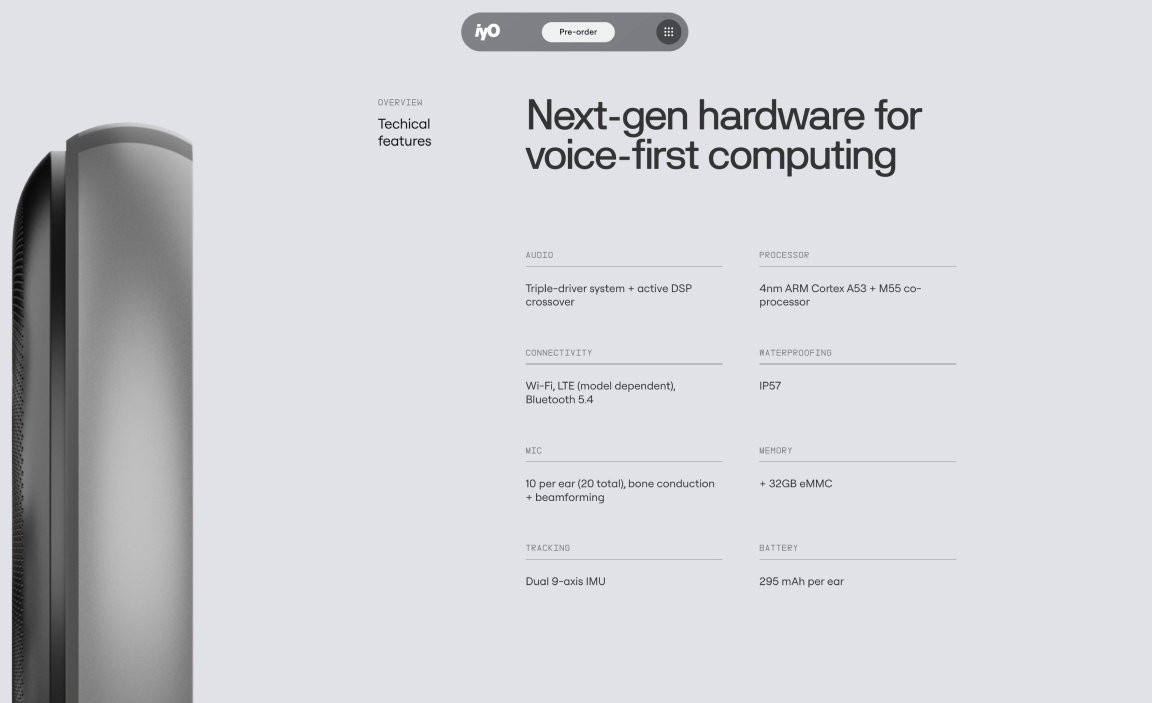
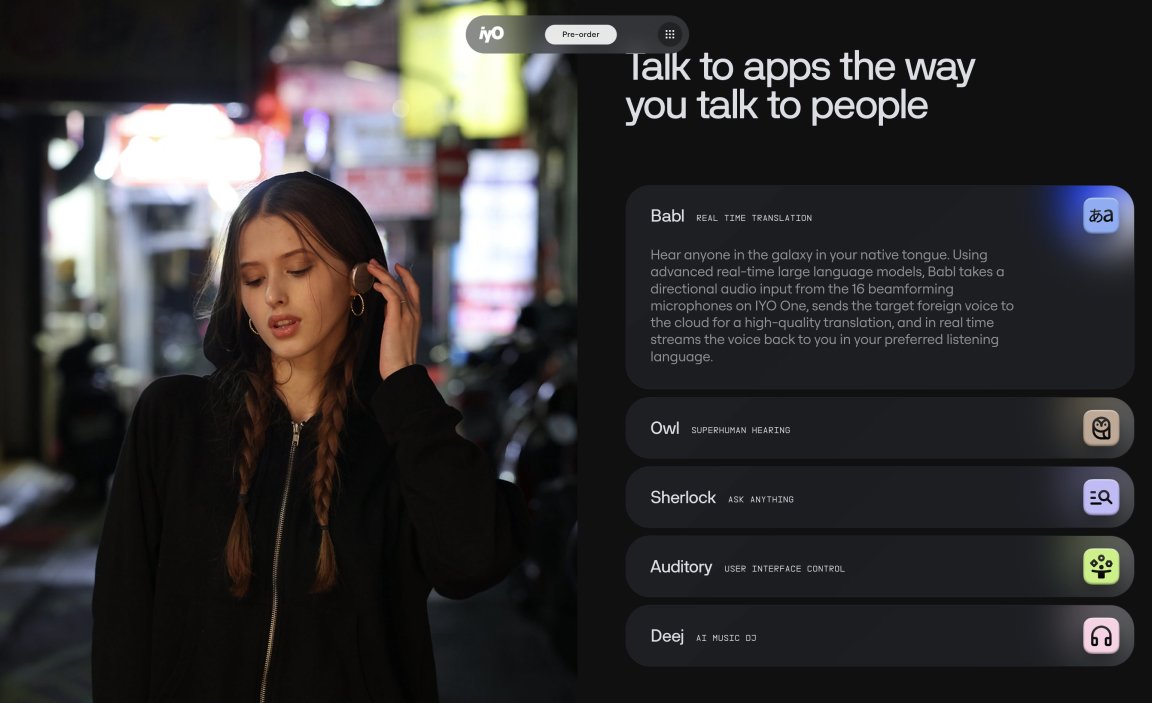
Following the lawsuit filing, OpenAI’s official Newsroom account on X confirmed it had been taken offline “ due to a court order following a trademark complaint from iyO about their use of the name ‘io”. This post indicating that the legal challenge is already having tangible effects beyond just a name dispute. In their official statement to The Verge, OpenAI reiterated that it doesn’t agree with the complaint and is “reviewing their options”. Now, the case isn’t just about clever word‑play. but it’s more about immediate legal consequences against OpenAI. A trademark dispute that has already triggered a court-ordered takedown signals that the wheels of this conflict are well in motion.
For iyO the fight is about more than naming rights. At stake is who defines the future of human‑AI interaction. If IYO succeeds, OpenAI could be forced to rebrand its flagship hardware, jeopardizing both marketing momentum and investor confidence. Bloomberg Law notes that OpenAI has contested calls for an imminent injunction, arguing IYO’s claims are “purely hypothetical” and that there’s no evidence of actual consumer confusion
For now, both sides stand firm. IYO’s founder Jason has framed this as a David vs. Goliath struggle. A small startup defending years of R&D and brand investment. OpenAI, armed with deep pockets and a partnership with design legend Jony Ive, is prepared to fight hard too and may well prevail in court.
Regardless of the outcome this case comes at an important moment, as AI expands beyond screens into wearables and ambient devices, foundational questions about brand identity, intellectual property and naming strategy will play an outsized role in shaping the entire ecosystem.

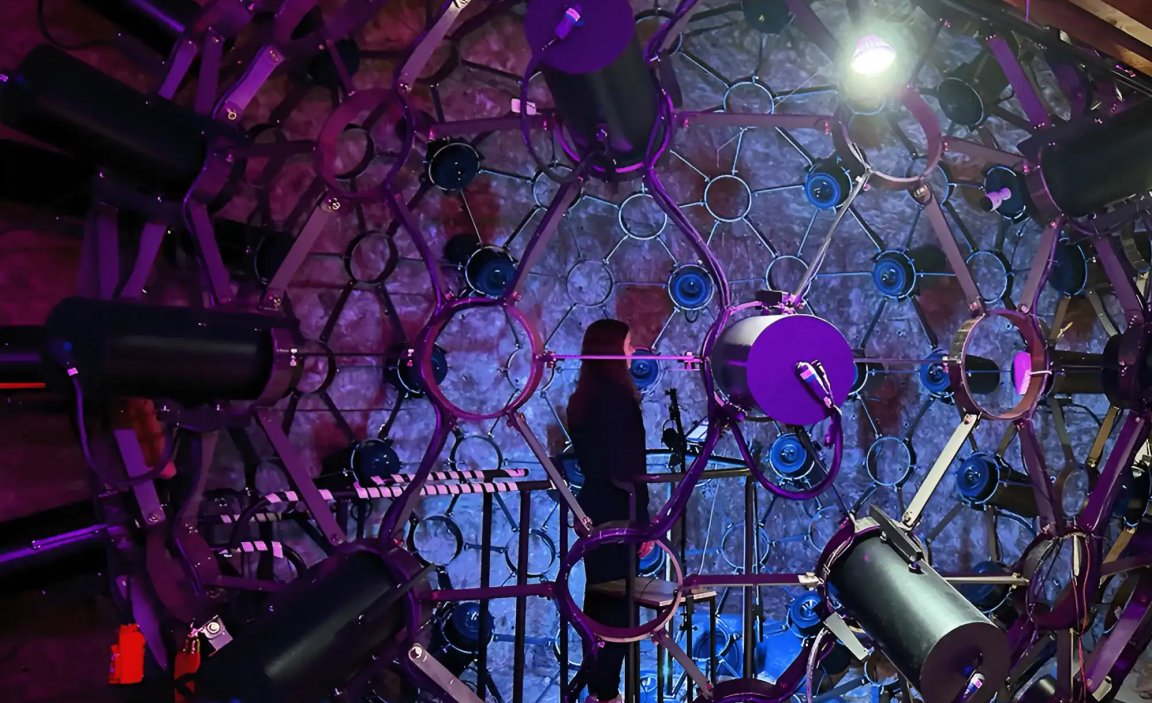
The trademark battle is far from resolved. IYO is seeking a temporary restraining order or preliminary injunction to bar OpenAI from using the io trademark and OpenAI is fighting back, questioning the immediacy and validity of those claims. And the court order to shut down OpenAI’s marketing page shows that this is not idle finger-wagging but is a real legal fight with consequences already showing up.
While the hardware deal between OpenAI and Jony Ive remains intact, the name under which their first product ships is in legal jeopardy. The next few weeks may determine whether io survives as a brand or becomes a case study in how naming mistakes can derail even the most ambitious AI brands.
You can watch the original io announcement below. Since the lawsuit against OpenAI was filed, my video is now the only one left on YouTube, and has been linked in news articles from Bloomberg, The Guardian, Gizmodo and more.
